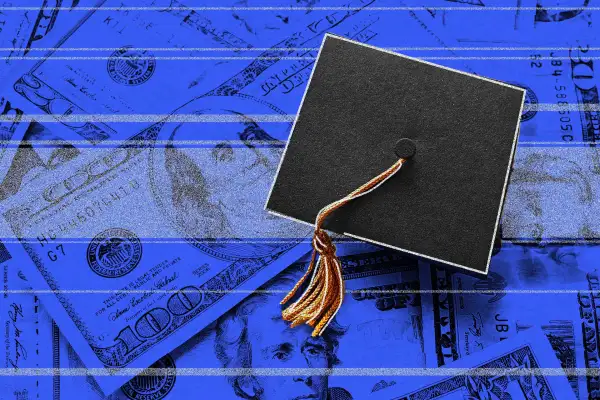FAFSA Delays Will Push Back College Financial Aid Timeline by Months

Students applying to college this year will have to wait longer to get financial aid offers, after continued delays mar the rollout of the new Free Application for Federal Student Aid (FAFSA).
The Department of Education isn’t able to start sending FAFSA applicants’ information to colleges until March, officials said on a press call with reporters Tuesday. That sets back the already-stalled FAFSA rollout by two additional months, and it's expected to set off a domino effect for financial aid and admissions deadlines set by colleges.
“We're updating institutions and states to let them know that they will begin receiving their FAFSA information in batches in the first half of March,” said Under Secretary of Education James Kvaal, on the call. Colleges were expecting to start receiving the information — vital to crafting their financial aid award letters to prospective students — by the end of January.
The “in batches” wording particularly stood out to Allie Arcese, spokesperson for the nonprofit National Association of Financial Aid Administrators, meaning the exact timeline colleges will receive all the information they need to send out financial aid offers remains murky.
Even after colleges receive what they need from the department, Arcese says it takes several additional weeks for them to send out financial aid offers, which also factor in grants and scholarships from the school and the state.
“Pushing back the delivery of this information into March means students will have to wait even longer for their aid offers,” Arcese says. “Possibly into April.”
What’s the FAFSA holdup this time?
The new timeline is the latest in a series of delays that has roiled the rollout of the 2024-25 FAFSA, which underwent several changes aimed at simplifying the process of applying for financial aid. This particular setback was caused by a calculation error in how the Education Department determines how much money applicants will receive.
Alongside streamlining the application families see, there were a slew of behind-the-scenes formula changes this year, too, including a directive to update the guidelines used to calculate eligibility for financial aid to account for inflation. But the department — already months behind on releasing the FAFSA due to the revamp — failed to make that inflation adjustment in a scramble to get the form online by the legally mandated New Year deadline.
Last week, NPR reported that the Education Department decided to fix the mistake, a $1.8 billion oversight, for the 2024-25 academic year after all. On Tuesday, the department confirmed that, and added that it would be doing so before sending financial aid information to colleges, thus pushing that date back to sometime in March.
"These are really unprecedented changes," a senior department official said.
The official pointed out that the department was tasked by Congress with overhauling the FAFSA while overseeing the return to student loan payments and developing new student-loan servicer contracts — all without any of the $600 million the department said it needed to carry out the tasks.
"We are certainly working under very substantial workload demands created by Congress and without additional resources," the official said.
Rippling effects of delayed aid
The FAFSA delays are causing major headaches, especially for prospective college students and their families.
For many students, financial aid makes all the difference between “not just where you can afford to go to college, but whether you can afford to go to college,” said Jon Fansmith, a senior vice president at the nonprofit American Council on Education, in a recent interview with Money.
The latest government figures show that 87% of first-time undergrads rely on financial aid to pay for college. Overall, about 20 million students fill out the FAFSA annually to see if they qualify for aid for higher education, such as grants, scholarships and student loans.
In normal application cycles, most applicants receive offers in March — and sometimes as early as the fall of the preceding year. Families need time to review the amount of aid and compare offers before they decide where to enroll.
With College Decision Day, unofficially May 1, approaching, some college applicants may now only have a matter of weeks — not months — to choose their college.
Even before the latest delay came to light, some states and colleges already started pushing back their financial aid and admissions deadlines.
“So it's reasonable to think many more may follow suit given today’s news,” Arcese says.
In addition to the delays, many applicants have been experiencing technical issues since the FAFSA fully opened early this month. For instance, parents without Social Security numbers can’t contribute to or start the FAFSA, even when they’re invited.
The Education Department said Tuesday that officials are "very aware of that issue” and working to fix it.
Despite the rocky rollout, more than 3 million FAFSA applications have been submitted, the department says.
More from Money:
Tax Season Is Here — Here Are Key Dates to Help Get Your Refund Fast
Here's Where Student Loan Forgiveness Stands After a Flurry of Developments
Time Is Running Out to Register for Free Government Internet Plans

